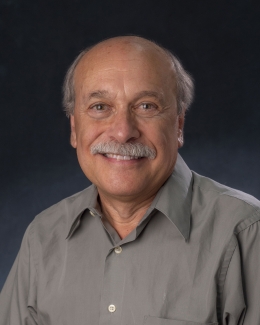JILA is thrilled to announce that Dr. Mitch Begelman, a JILA Fellow and esteemed professor in the Department of Astrophysical and Planetary Sciences at the University of Colorado Boulder, has been elected as a member of the National Academy of Sciences. This prestigious honor is bestowed in recognition of his distinguished and ongoing contributions to original research in astrophysics.
The National Academy of Sciences, which announced the election of 120 new members and 24 international members this year, selects individuals who have achieved significant accomplishments in their respective scientific fields.
Begelman's inclusion in this elite group brings the total number of active members to 2,617 and international members to 537, emphasizing the Academy's commitment to excellence and scientific advancement.
Begelman's research primarily explores the frontiers of theoretical and high-energy astrophysics, focusing on the dynamics of black holes and their energy outputs. His pioneering work has significantly advanced the understanding of how black holes influence their surrounding environments and contribute to the broader structure of the universe.
The election of Begelman to the National Academy of Sciences not only honors his individual achievements but also highlights JILA's and the University of Colorado Boulder's role as leading institutions in astrophysical research.
Written by Kenna Hughes-Castleberry, JILA Science Communicator



 The Physics Frontiers Centers (PFC) program supports university-based centers and institutes where the collective efforts of a larger group of individuals can enable transformational advances in the most promising research areas. The program is designed to foster major breakthroughs at the intellectual frontiers of physics by providing needed resources such as combinations of talents, skills, disciplines, and/or specialized infrastructure, not usually available to individual investigators or small groups, in an environment in which the collective efforts of the larger group can be shown to be seminal to promoting significant progress in the science and the education of students. PFCs also include creative, substantive activities aimed at enhancing education, broadening participation of traditionally underrepresented groups, and outreach to the scientific community and general public.
The Physics Frontiers Centers (PFC) program supports university-based centers and institutes where the collective efforts of a larger group of individuals can enable transformational advances in the most promising research areas. The program is designed to foster major breakthroughs at the intellectual frontiers of physics by providing needed resources such as combinations of talents, skills, disciplines, and/or specialized infrastructure, not usually available to individual investigators or small groups, in an environment in which the collective efforts of the larger group can be shown to be seminal to promoting significant progress in the science and the education of students. PFCs also include creative, substantive activities aimed at enhancing education, broadening participation of traditionally underrepresented groups, and outreach to the scientific community and general public.